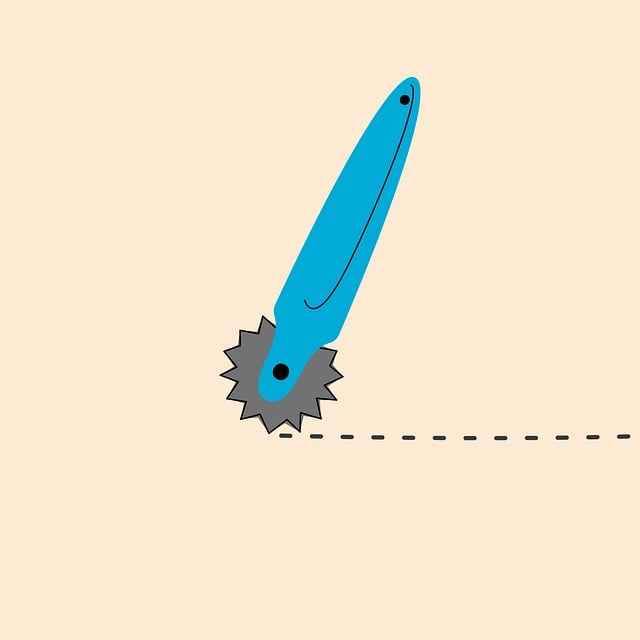To enhance problem-solving skills, identify weaknesses through specialized diagnostic tools for cognitive strengths and shortcomings. Select tools tailored to critical thinking, decision-making, and creativity, like genetic testing kits or medical image analysis software. Practice with case studies and receive feedback to critically analyze performance and adjust strategies. Incorporate diverse methods and creative tools for complex challenges, such as vital signs monitors or air quality testing devices. In daily life, use diagnostic tools for environmental assessments and online health platforms for comprehensive well-being management.
Looking to sharpen your problem-solving skills? This comprehensive guide explores effective strategies to transform you into a more proficient solver. Start by identifying weaknesses and assessing your current abilities using select diagnostic tools. Practice with real-world cases, learn from feedback, and diversify your approach with creative strategies. Apply these enhanced skills in daily life, leveraging select diagnostic tools to navigate challenges with greater ease and confidence.
- Identify Weaknesses: Assess Current Problem-Solving Skills
- Choose Right Tools: Select Diagnostic Software Solutions
- Practice with Cases: Enhance Abilities Through Real-World Scenarios
- Learn from Feedback: Analyze Performance to Improve Techniques
- Diversify Approaches: Incorporate Creative Strategies for Complex Issues
- Apply in Daily Life: Use Refined Skills to Navigate Everyday Challenges
Identify Weaknesses: Assess Current Problem-Solving Skills

To enhance problem-solving abilities, it’s essential to start by identifying weaknesses in your current skills. Assess how you tackle challenges and pinpoint areas where improvements are needed. This self-evaluation can be facilitated by employing diagnostic tools that offer insights into your cognitive strengths and weaknesses. Select tools that cater to various aspects of problem-solving, such as critical thinking, decision-making, and creativity.
For instance, consider using genetic testing kits to understand any innate predispositions or limitations in cognitive functions, environmental health monitors to assess the impact of your surroundings on mental acuity, or medical image analysis tools to gain a deeper comprehension of visual perception and pattern recognition—all of which play significant roles in problem-solving. By leveraging these diagnostic aids, you can gain a clearer picture of where to focus your development efforts.
Choose Right Tools: Select Diagnostic Software Solutions

When it comes to enhancing problem-solving abilities in healthcare, selecting the right diagnostic tools is a game-changer. In today’s digital age, numerous online health assessment platforms offer advanced features that streamline the evaluation process. These platforms provide an array of options, from simple questionnaires to complex medical image analysis tools, catering to various specialities like endocrinology.
For instance, specialized endocrinology diagnostic tools can aid in identifying hormonal imbalances or metabolic disorders with remarkable accuracy. These solutions leverage cutting-edge technology, such as machine learning algorithms, to interpret vast amounts of data generated through patient interactions and medical imaging. By integrating these diagnostic software solutions into workflows, healthcare providers gain valuable insights, enabling more effective problem-solving and ultimately leading to improved patient outcomes.
Practice with Cases: Enhance Abilities Through Real-World Scenarios

To enhance problem-solving abilities, practicing with real-world scenarios is invaluable. Engaging with case studies offers a practical approach to applying theoretical knowledge. By selecting diagnostic tools that mimic complex situations, individuals can hone their skills in interpreting data and making informed decisions. This hands-on experience bridges the gap between learning and application, fostering a deeper understanding of problem dynamics.
Utilizing resources like genetic testing kits or digital diagnostics for chronic conditions, as well as mobile health (mHealth) apps, provides access to diverse case scenarios. These tools expose users to varied patient profiles, symptoms, and outcomes, enriching their ability to navigate complex medical landscapes. Through regular practice with such cases, problem-solving abilities are refined, leading to improved performance in both academic and professional settings.
Learn from Feedback: Analyze Performance to Improve Techniques

Receiving feedback is an invaluable asset for enhancing problem-solving abilities. It provides a clear view of areas that need improvement and offers insights into more effective techniques. When faced with feedback, take time to analyze your performance critically. Identify patterns in mistakes or areas where you consistently fall short, as these could point to underlying cognitive biases or gaps in knowledge. Utilize advanced blood analysis equipment or other specialized oncology diagnostic aids to gain deeper, more accurate perspectives on complex issues.
This introspective approach, combined with the right diagnostic tools, allows for targeted adjustments in your problem-solving strategies. For instance, endocrinology diagnostic tools can help uncover subtleties in hormonal imbalances that might otherwise go unnoticed. By incorporating these insights into your practice, you not only sharpen your current skills but also lay a solid foundation for continually advancing your problem-solving capabilities over time.
Diversify Approaches: Incorporate Creative Strategies for Complex Issues

Enhancing problem-solving abilities requires diversifying your approach and incorporating creative strategies for complex issues. Traditional methods often fall short when tackling intricate problems that demand innovative solutions. One effective way to achieve this is by selecting appropriate diagnostic tools tailored to specific challenges. These tools, such as renal monitoring systems or air quality testing devices, provide valuable insights that can guide decision-making processes.
For instance, vital signs monitors offer real-time data on physiological parameters, enabling a deeper understanding of underlying conditions. Incorporating these diverse tools and strategies fosters a more holistic approach to problem-solving, making it easier to navigate complex scenarios with confidence.
Apply in Daily Life: Use Refined Skills to Navigate Everyday Challenges

In our daily lives, we encounter numerous challenges that require robust problem-solving skills. Enhancing these abilities can be as simple as applying refined techniques to everyday situations. One effective approach is to utilize select diagnostic tools that mirror lab-quality diagnostics at home. These tools, such as air quality testing devices, empower individuals to assess and mitigate environmental factors impacting their health and well-being. By incorporating such innovations into our routines, we gain insights into our surroundings, enabling us to make informed decisions and navigate challenges more effectively.
Moreover, leveraging online health assessment platforms offers another avenue for honing problem-solving skills. These digital tools provide a comprehensive overview of one’s health by gathering data through questionnaires and interactive assessments. By regularly engaging with these platforms, individuals can identify patterns, pinpoint areas needing improvement, and develop tailored strategies to address them. This proactive approach not only enhances overall well-being but also fosters a mindset conducive to tackling life’s complexities with enhanced problem-solving abilities.
By implementing these strategies, you can significantly enhance your problem-solving abilities. From identifying weaknesses and choosing the right diagnostic tools, to practicing with real-world cases and learning from feedback, each step fosters growth. Diversifying your approaches ensures you’re equipped to tackle complex issues creatively. Ultimately, applying these refined skills in daily life empowers you to navigate challenges with greater ease and efficiency.
